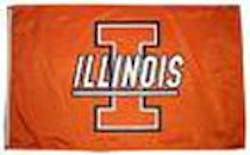University of Illinois Scientists Develop Chemical to Remove Perchlorate
Scientists at the University of Illinois at Urbana-Champaign have developed a new way to remove perchlorate in contaminated groundwater.
The university developed a new chemical catalyst that uses hydrogen gas to efficiently remove and destroy the harmful perchlorate.
Perchlorate is a contaminant found in solid-rocket fuel, fireworks and roadside flares that can interfere with the uptake of iodine and disrupt thyroid function.
Perchlorate is soluble in water and therefore can be transported great distances in groundwater or rivers.
The catalyst was developed by John Shapley, a professor of Chemistry, and graduate student Keith Hurley. It is composed of palladium and rhenium and supported on active carbon. The catalyst performs at room temperature under normal atmospheric pressure and does not dissolve in water.
The difference between this catalyst and other methods is that current remedies, such as ion exchange systems, can concentrate and remove perchlorate, but do not destroy the substance. The new catalyst removes the perchlorate altogether.
According to the University of Illinois News Bureau, the catalyst was funded by the Center of Advanced Materials for the Purification of Water with Systems (CAMPWS), a National Science Foundation Science and Technology Center based at the University.
Source: University of Illinois News Bureau
